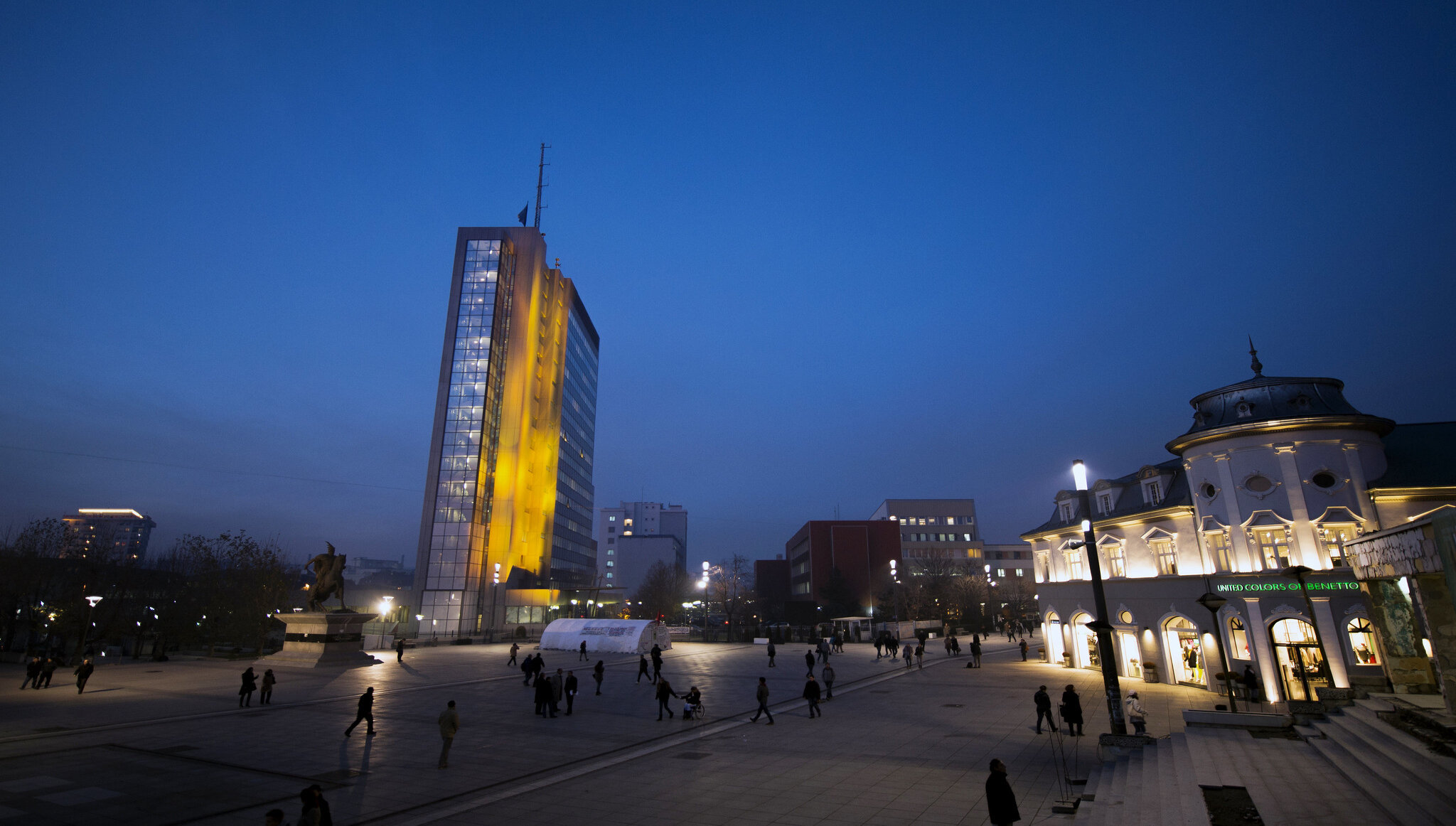On March 30, Group for Legal and Political Studies (GLPS) held a Press Conference to present a Policy Analysis titled: “Two Years of Kurti II Government: Setbacks and achievements”, held in Prishtina. During the conference, GLPS presented a detailed assessment of the second year of Kurti II government, in particular to its performance in some of the key policy areas, including good governance, rule of law, public administration reform, foreign policy and EU integration in general. Particular focus was also put in the Kosovo-Serbia Dialogue process and Kurti’s approach during the second year in this significant part. As per GLPS’ assessment, in general, the second year of the Kurti II Government was characterized by the phenomenon of the positions of acting officials, in most cases exceeding every legal deadline. This negative approach has seriously damaged the functioning of the public administration in Kosovo. It should be noted that even in its second year in power, the Government managed to have only four Secretary General’s with a full mandate, while most ministries are functioning with Action SG’s. Similarly, PM Kurti mentioned a possible reformation process due to the unsatisfactory performance by certain ministers and their cabinets, nevertheless, no concrete steps were taken in this regard. GLPS considers that such a process remains fundamental to increase governmental performance, and is evident at this stage. Two years after, the Kurti II Government failed to install a proper restructuring/reorganization of ministries that came as a result of downsizing of the government way before during Kurti I. Years later, the government still fails to ensure proper restructuring, which may look good in paper, but is largely failing in practice.
In a positive note, the adoption of several laws such as: the new Code of Criminal Procedure, the Law on the Agency for the Prevention of Corruption, the new Law on the Declaration of Assets, the legislation on the financing of political parties and the decision to create structures for the drafting of the State Strategy and Anti-Corruption Action Plan, should be welcomed. Kosovo is estimated to be still at an early stage in the fight against corruption and organized crime. However, during this year, the police operations against smuggling in the north of Kosovo and the “Subsidies” and “Brezovica” cases can be seen as positive signs in the fight against organized crime and corruption. The government, as well as the justice institutions, should make increased efforts for stronger inter-institutional coordination to jointly address the challenges that are hindering progress in the rule of law sector. The Vetting process and that of the State Bureau for the Verification and Confiscation of Unjustified Assets have gone through several stages, chronologically. Among other things, the local actors have addressed the Venice Commission for advisory opinions which have already been published, and should be positively assessed. However, at the moment both draft laws are “frozen assets” due to the fact that both are in the Constitutional Court of the Republic of Kosovo for evaluation of constitutionality. Therefore, until a decision of the Constitutional Court, the Kurti II Government must strengthen the cooperation with the opposition parties, the parties from among the non-majority communities in Kosovo, civil society and interest groups, in order to implement reforms in justice.
In terms of foreign policy, Kosovo’s application for membership in the Council of Europe in May 2022 and in the European Union in December 2022 should be positively evaluated. However, in the second year of Kurti’s government, Kosovo faced several important obstacles in foreign affairs. Despite its efforts, it failed to obtain any new state recognition or secure membership in international organizations.
When it comes to public administration reform, the National Development Strategy 2022-2030 represents a good momentum in the development of the country. However, the Government must address the limitations of transparency and accountability and increase public participation in policy development and decision-making. It is worth noting that the development of the Public Administration Reform Strategy and the National Development Strategy took place in parallel with the new Public Finance Management Strategy, showing a significant shift towards a more cohesive and integrated approach to public sector reform. However, the Government has not yet managed to demonstrate desirable results regarding the process of rationalization of agencies, a long-standing demand of the EU and civil society. There is still a large number of other agencies and bodies, whose existence is contrary to the Law on the Organization and Functioning of the State Administration and Independent Agencies (LOFSAIA). Given this, lack of clear accountability lines and performance systems within the agencies is still highly present.
The detailed Policy Analysis can be found here.
Venue: GLPS Offices (Str. “Rexhep Luci”, 16/1, 10000 Pristina, Kosovo)
Share article
Latest Publications
April 24, 2024
Policy Analysis
Tracking Kosovo's Commitment: Monitoring Adherence to the Venice Commission Rule of Law Checklist in ...
April 8, 2024
Policy Analysis
Reflecting on the Third Year of Kurti II: Setbacks and Achievements in Rule of Law, Public Administr ...
March 22, 2024
Policy Analysis
Lost, “in the Twilight Zone” Rebutting the Court’s Blunder
Related Espresso Insights
March 4, 2024
Espresso.Insights
Passport Hangover: What’s next after Spain’s Kosovo breakthrough?

January 16, 2023
Espresso.Insights
Recognized but not supported: Hungary's stance on Kosovo's EU bid





